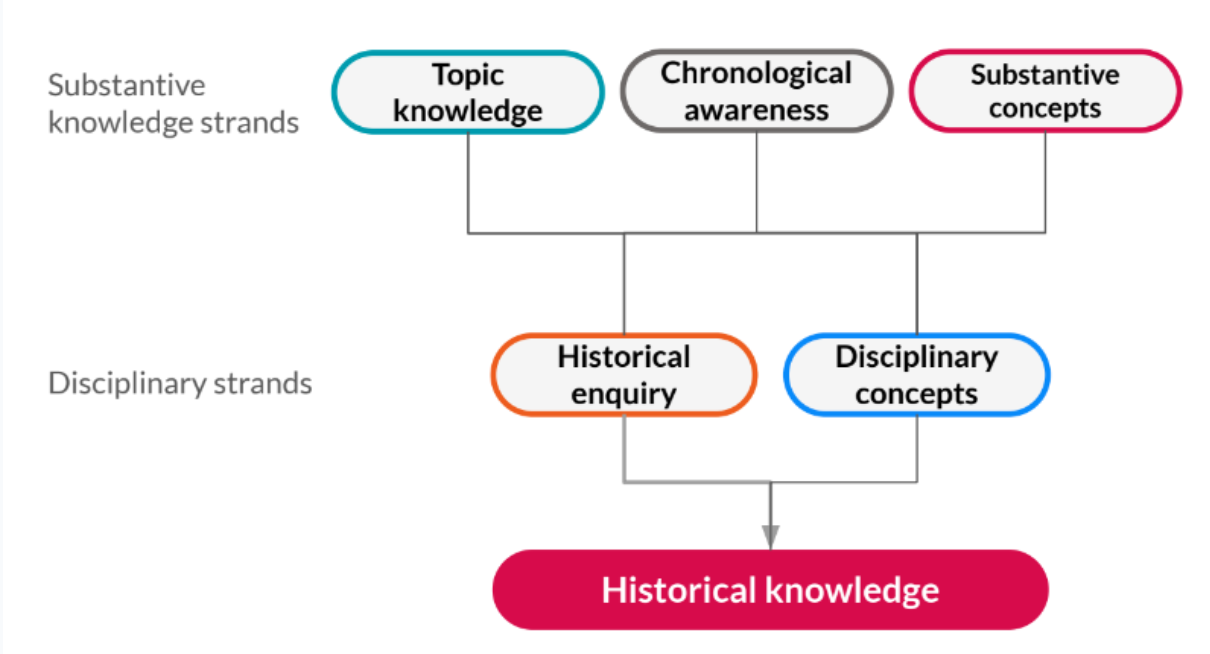History at The Royal School
At The Royal School our history curriculum aims to inspire pupils to be curious and creative thinkers who develop a complex knowledge of local and national history and the history of the wider world. We want pupils to develop the confidence to think critically, ask questions, and be able to explain and analyse historical evidence.
We aim to build an awareness of significant events and individuals in global, British and local history and recognise how things have changed over time. History will support children to appreciate the complexity of people’s lives, the diversity of societies and the relationships between different groups. Studying History allows children to appreciate the many reasons why people may behave in the way they do, supporting children to develop empathy for others while providing an opportunity to learn from mankind’s past mistakes. Our History curriculum aims to support pupils in building their understanding of chronology in each year group, making connections over periods of time and developing a chronologically-secure knowledge of History.
We hope to develop pupils’ understanding of how historians study the past and construct accounts and the skills to carry out their own historical enquiries. In order to prepare pupils for their future learning in History, our curriculum aims to introduce them to key substantive concepts including power, invasion, settlement and migration, empire, civilisation, religion, trade, achievements of humankind, society and culture.
We use Kapow Primary’s History scheme of work as the basis of our history curriculum which aligns with the national curriculum and identifies the following key strands:
The scheme emphasises the importance of historical knowledge being shaped by disciplinary approaches, as shown in the diagram above. These strands are interwoven through all our history units to create engaging and enriching learning experiences which allow the children to investigate history as historians do. As they progress through the school the children will develop their understanding of the following key disciplinary concepts:
• Change and continuity
• Cause and consequence
• Similarities and differences
• Historical significance
• Historical interpretations
• Sources of evidence
These concepts will be encountered in different contexts during the study of local, British and world history. Accordingly, children will have varied opportunities to learn how historians use these skills to analyse the past and make judgements. They will confidently develop and use their own historical skill set. As children will be given the opportunity to create their own historical enquiries to study using sources and the skills they have developed. Our history curriculum follows the spiral curriculum model where previous skills and knowledge are returned to and built upon. For example, children progress by developing their knowledge and understanding of substantive and disciplinary concepts by experiencing them in a range of historical contexts and periods.
Our history lessons are designed to be varied, engaging and hands-on, allowing children to experience the different aspects of an historical enquiry. In each lesson, children will participate in activities involving disciplinary and substantive concepts, developing their knowledge and understanding of Britain’s role in the past and that of the wider world. Children will develop their knowledge of concepts and chronology as well as their in-depth knowledge of the context being studied. We adapt learning for every lesson to ensure that all pupils can access it, and opportunities to stretch pupils’ learning are available when required.
Knowledge organisers for each unit support pupils in building a foundation of factual knowledge by encouraging recall of key facts, concepts and vocabulary.
The impact of our history curriculum is constantly monitored through both formative and summative assessment opportunities. Our teachers assess pupils against the learning objectives through the use of resources such as skill catchers and low stake knowledge assessment quizzes.

